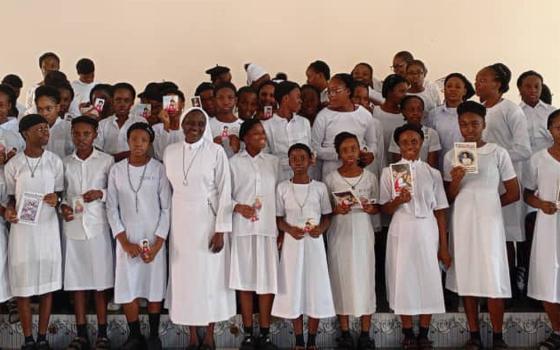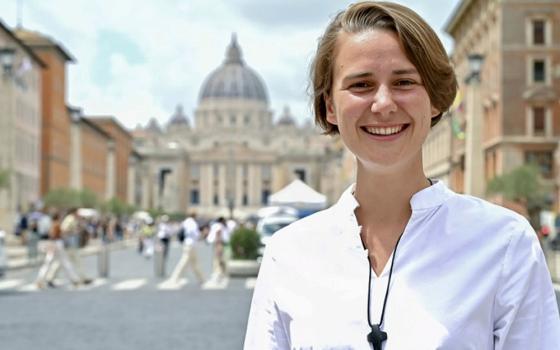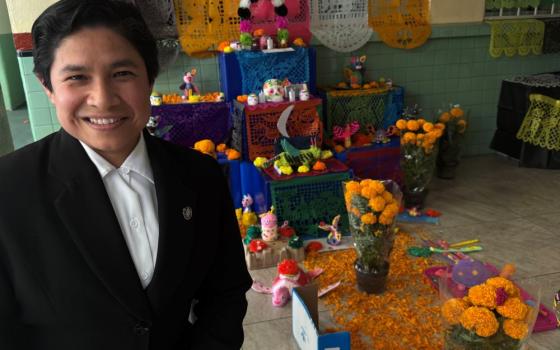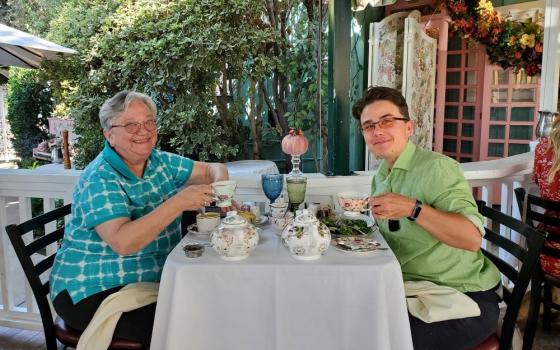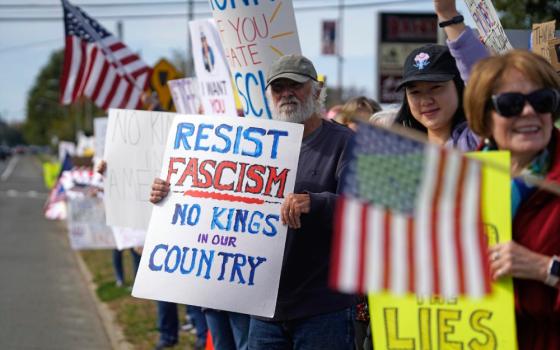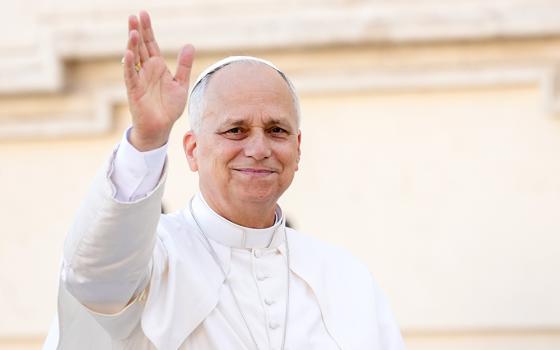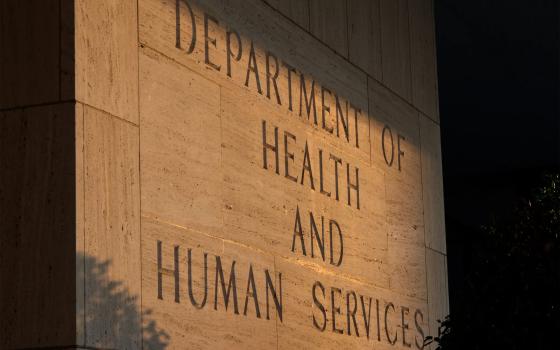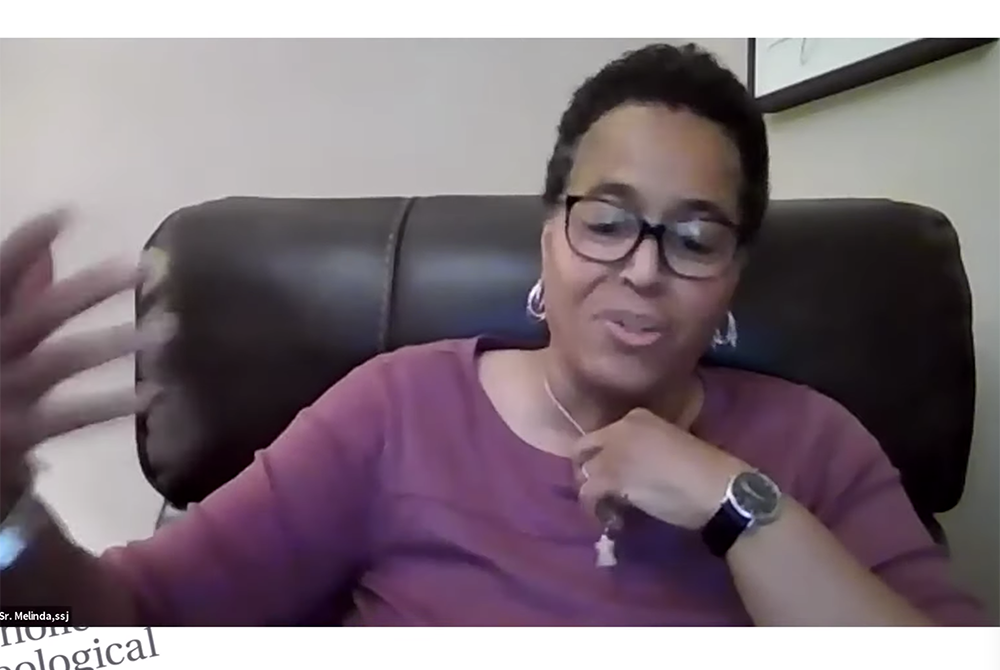
Sr. Melinda Pellerin of the Sisters of St. Joseph of Springfield, Massachusetts, speaks during a session of the three-part series on the role of religious life in racial injustice sponsored by the Center for the Study of Consecrated Life at Catholic Theological Union in Chicago. (GSR screenshot)
Sr. Maria Cimperman was sure a conversation on the role of religious life in dismantling racial injustice would tap an unmet need.
She had no idea it would be so popular.
Cimperman, a member of the Religious of the Sacred Heart of Jesus and director of the Center for the Study of Consecrated Life at Catholic Theological Union in Chicago, said the response to "A Call to Transformative Love in Religious Life: Stories of Race, Place and Grace" has been overwhelming. More than 1,700 people registered for the three-part online series, and 800 took part in the first session Nov. 9.
"People have just been pouring out their support in texts and phone calls," Cimperman said. "This is just the beginning of a conversation."
The first session, "Sharing Our Histories and Our Stories," focused on the journey of people of color entering white religious congregations. The Nov. 16 session examined the history of religious congregations that owned enslaved people. The final session, which will be on how to transform congregations to make them more welcoming, is Nov. 23. Registration is still open.
The series is jointly sponsored by the center and the National Black Sisters' Conference. Sr. Josita Colbert, a Sister of Notre Dame de Namur and president of the National Black Sisters' Conference, told participants in the first session that one of the goals of the series was to make "good trouble."
Colbert told Global Sisters Report that consecrated religious need to lead the way on racial justice.
"We have a lot of really good things written, but we have to actualize what's on those papers," she said. "We can't change people. They're going to have to change themselves. The approach has to be different."
Colbert said the overwhelming response to the series shows "people are ready to talk. ... It's just the beginning, and I'm glad to be part of it."
In her introduction to the first session, she said she hopes religious communities will be more welcoming than they have in the past.
Sr. Melinda Pellerin said she knew from her first day of elementary school that she wanted to become a member of the Sisters of St. Joseph of Springfield, Massachusetts, like her teachers, but felt unwelcome when she eventually tried to enter.
"I did not feel invited in," she told participants. "I never felt that they really wanted me."
She entered anyway.
"I knew when I entered a community of white women, it would be challenging and frustrating," she said. "But I knew I had spiritual and valuable gifts to give to the community."
It can still be challenging, she said, but "the sisters are always willing to sit down and dialogue with me, even when the dialogue is difficult to handle."
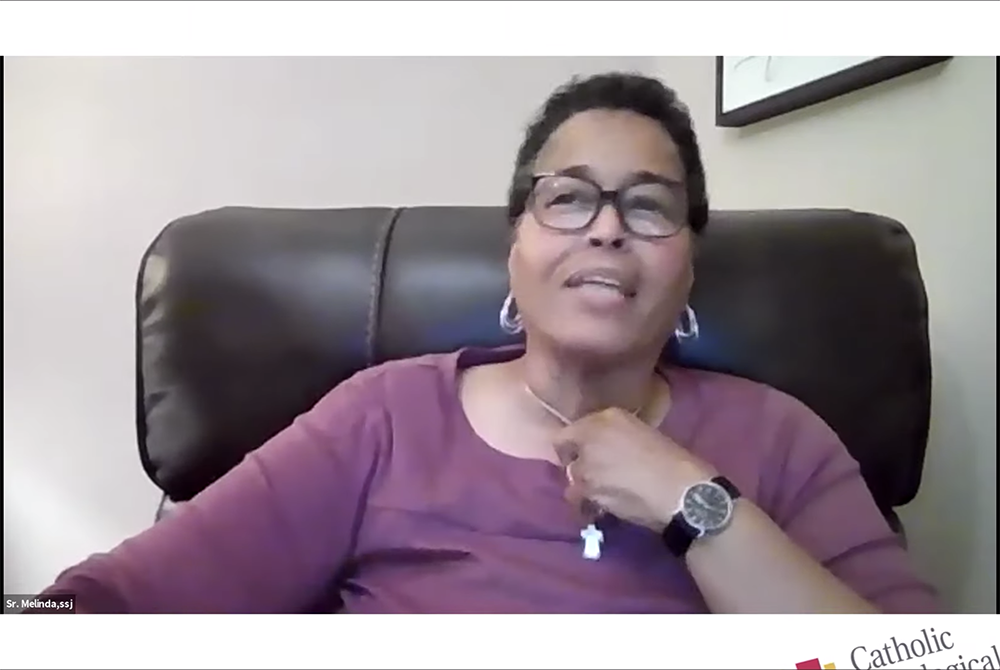
Sr. Melinda Pellerin of the Sisters of St. Joseph of Springfield, Massachusetts, speaks during a session of the three-part series on the role of religious life in racial injustice sponsored by the Center for the Study of Consecrated Life at Catholic Theological Union in Chicago. (GSR screenshot)
Sr. Desiré Findlay grew up in New Mexico in a white parish and white schools. When she met two Sisters of St. Felix of Cantalice, known as the Felician Sisters, they seemed to be an order where it was OK to be different, and she thought she would fit in.
"I didn't come with a culture that was different. I just looked different," Findlay said in the first session of the series.
Then the order let her join the National Black Sisters' Conference and attend its events. Out of that blessing came the challenge of new insights on things she hadn't noticed before.
"Now, when I see biases and unchecked prejudices, it drives me crazy," Findlay said. "I'm grateful my community listens even when there are times when I have to challenge them on things that are unjust."
Advertisement
Sr. Anita Baird of the Daughters of the Heart of Mary moderated the discussion in the first session. She talked about a friend who, on her way from her home in Mississippi to join the Oblate Sisters of Providence in Baltimore, Maryland, a few decades ago, stopped for Mass along the way only to have to sit in the back of the church with the few Black members of the parish. After all the white members had received Communion, the priest put on gloves and then gave Communion to the Black members.
"And yet there was something that was calling her to give her life in consecration to God through religious life," Baird said.
Pellerin said generations of her family had to sit at the back of a white Catholic church, and she often asked her grandmother why they stayed despite the treatment.
"She said, 'Because you know who was sitting with us in the back of that church? Jesus was with us,' " Pellerin said. "We know what this church is supposed to be about. It may not be that way now, but we know what it is."
[Dan Stockman is national correspondent for Global Sisters Report. His email address is [email protected]. Follow him on Twitter or on Facebook.]

